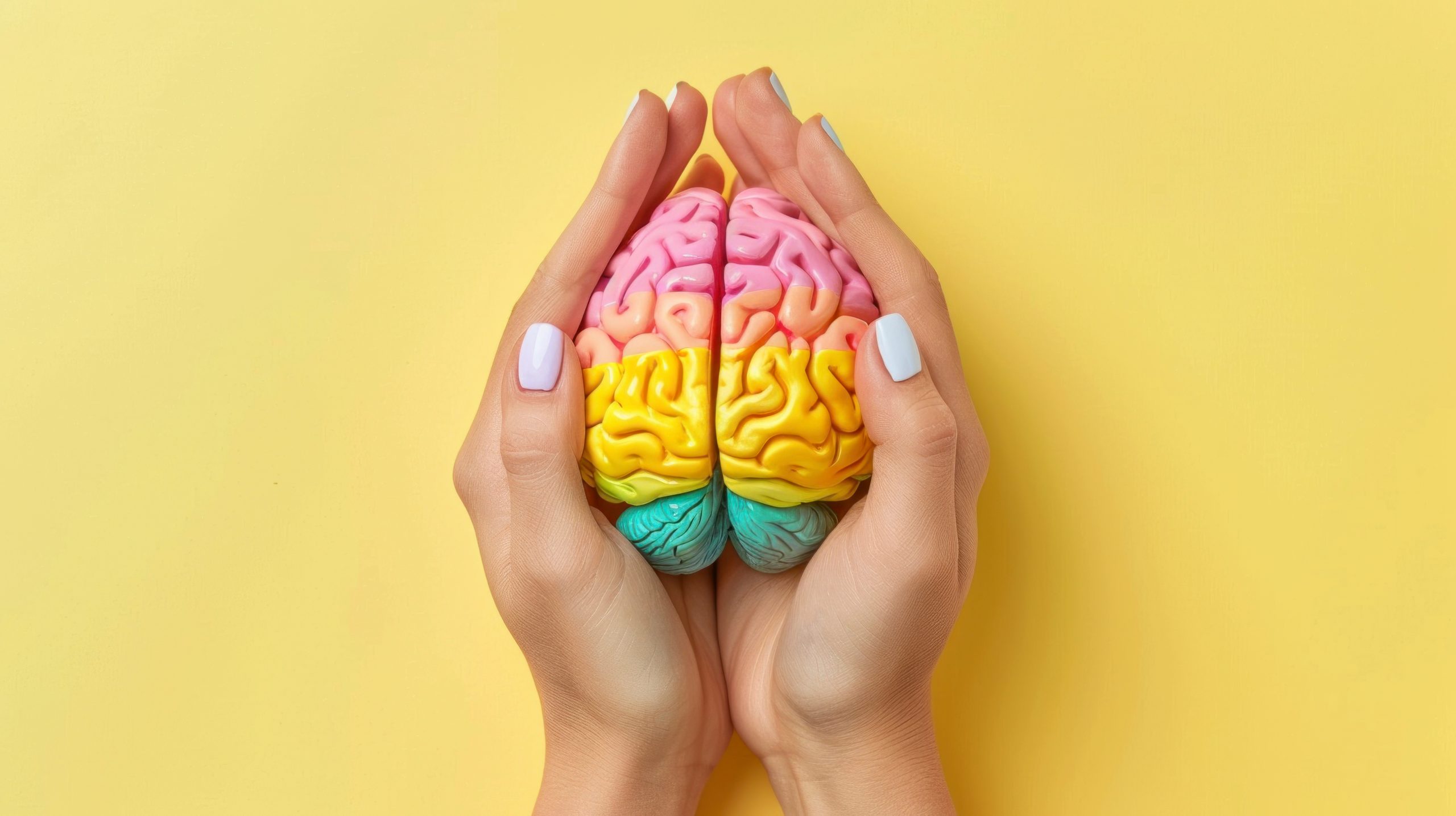


The role of neuropsychologists vs. psychologists: What’s the difference?

The role of neuropsychologists vs. psychologists: What’s the difference?
Neuropsychologists and psychologists belong to the same professional order and each play a key role in evaluating and supporting individuals. However, their specialties and areas of intervention differ. A neuropsychologist is a psychologist who focuses on analyzing brain processes and cognitive functions, while a psychologist specializes in emotional, relational, mental health aspects, as well as psychotherapy.
The neuropsychologist: A specialist in the brain and cognitive functions
Neuropsychology is a branch of psychology that studies the links between the brain and behavior.
A neuropsychologist, a specialist in brain functioning, evaluates an individual’s cognitive functions to establish a profile of strengths and weaknesses. These evaluations focus on intellectual functioning, memory, language, attention, executive functions (e.g., working memory, inhibition, planning, cognitive flexibility), and academic skills. Through these assessments, neuropsychologists aim to identify the causes of cognitive, emotional, or behavioral disorders and contribute to diagnoses. They also provide personalized recommendations to minimize the impact of cognitive difficulties in daily life.
At Clinique Médicale 360 Ogilvy, our team of three neuropsychologists offers complete neuropsychological assessments for children, adolescents, adults, and seniors.
The psychologist: An expert in emotional well-being and mental health
Psychologists primarily focus on emotional well-being by providing psychotherapy to support individuals. Therapy can be conducted individually or in groups. Psychologists also evaluate mental health issues and psychological difficulties, diagnosing conditions alone or in collaboration with other professionals.
At Clinique Médicale 360 Ogilvy, our psychologist offers psychotherapy for children, adolescents, and parent-child sessions using an integrative cognitive-behavioral approach (incorporating elements from other approaches as needed). Sessions can be held in person or via video conferencing if suitable.
One of our neuropsychologists also offers Cognitive behavioral therapy for insomnia (CBT-I) for adults aged 18 and over experiencing insomnia symptoms such as difficulty falling asleep, staying asleep, or early morning awakenings. CBT-I is considered the safest and most effective intervention for chronic insomnia. This therapy is provided through individual sessions, either in person or via video conferencing.
NEUROPSYCHOLOGY
What is a neuropsychological assessment?
Neuropsychology plays a significant role in various aspects of daily life, depending on the specific needs of each age group.
- For children and adolescents, neuropsychology helps identify neurodevelopmental disorders, understand the origins of cognitive, behavioral, and/or emotional issues, and develop tailored recommendations to reduce the impact of cognitive challenges in daily and academic life.
- For adults, evaluations can identify neuropsychological disorders and propose personalized solutions, such as tools to manage stress, improve concentration and organization, combat procrastination, and enhance daily functioning and productivity at work.
- For seniors, neuropsychological assessments help distinguish between normal and pathological cognitive aging. Evaluations are valuable for early detection of neurodegenerative diseases like dementia or recognizing the adverse effects of medical conditions on cognitive functioning. Personalized recommendations aim to facilitate daily life activities and guide medical and psychosocial management when needed.
Duration: A neuropsychological assessment typically takes 4 to 6 hours.
The main reasons for consultation at Clinique Médicale 360 Ogilvy include the evaluation of neurodevelopmental disorders (e.g., ADHD, dyslexia-dysorthographia, dyspraxia, dyscalculia, intellectual disability), giftedness, developmental assessments for school exemptions or grade-skipping, concerns about memory, and cognitive issues associated with aging.
Process:
Before the evaluation
- A phone intake with the clinical nurse to clarify the reason for consultation and schedule an appointment.
- Completion of questionnaires and submission of relevant documents (e.g., report cards, previous reports, etc.).
On the day of the evaluation
- A detailed case history (anamnesis) with the individual and their parents if the client is a child.
- An evaluation session with the individual lasting 4 to 6 hours, including neuropsychological tests tailored to the reason for consultation. In certain cases, such as for young children or seniors, it may be necessary to spread the evaluation process across multiple days.
After the evaluation
- Scoring of tests and analysis of the information collected by the neuropsychologist.
- A feedback session with the individual (and parents if applicable) to discuss the evaluation results and recommendations.
- Delivery of a detailed neuropsychological evaluation report.
What is the relevance of a neuropsychological evaluation?
Neurodevelopmental disorders are typically assessed and diagnosed based on the criteria outlined in the Diagnostic and Statistical Manual of Mental Disorders, Fifth Edition (DSM-5). The DSM-5 is a specialized reference guide designed for use by mental health professionals. It provides the diagnostic and statistical criteria for all recognized mental disorders. For example, the DSM-5 identifies conditions like ADHD by observing problematic behaviors repeatedly across different contexts, such as school and home.
However, a limitation of the DSM-5 is that it does not always account for the diversity in cognitive and emotional profiles of patients, nor does it fully consider the influence of contextual or neurobiological factors on observed behaviors.
Consequently, combining traditional approaches (behavioral observation and questionnaires) with neuropsychological methods (in-depth cognitive testing) leads to a more comprehensive evaluation. By integrating these methods, professionals can better identify individual profiles, examine comorbidities (the simultaneous presence of multiple disorders or psychological conditions), and determine the root causes of cognitive and behavioral difficulties. This allows for the development of a more personalized and effective treatment plan.
Examples of limitations of traditional approaches/DSM-5:
- Multiple disorders can mimic ADHD
Various mental health conditions, such as learning disorders, anxiety, depression, sleep disorders, or even general learning difficulties, can produce symptoms similar to ADHD. These issues may cause problems with focus, restlessness, or impulsivity, which can be mistakenly interpreted as signs of ADHD, particularly when the diagnosis relies heavily on behavioral observations. Therefore, it is crucial for health professionals to adopt a systematic and rigorous approach to minimize the risk of misdiagnosis.
- Comorbidities can be hidden behind ADHD symptoms
ADHD is often accompanied by other conditions, such as oppositional defiant disorder, anxiety disorders, learning disorders, or mood disorders. These comorbidities can not only intensify ADHD symptoms but also complicate the diagnosis, as some symptoms may mask or exacerbate those of another condition. Evaluations that fail to account for comorbidities risk providing an incomplete understanding of the individual’s condition, potentially leading to inadequate treatments.
- DSM-5-based questionnaires are subjective
Questionnaires commonly used for diagnosing ADHD often rely on self-assessments or evaluations by family members and teachers. While these questionnaires are validated, they introduce a degree of subjectivity, as responses may vary based on the respondent’s perception and context. Additionally, observed symptoms may be exaggerated or minimized depending on the environment, making the results less reliable for establishing an accurate diagnosis.
What are the costs of a neuropsychological evaluation?
- Standard Neuropsychological Evaluation: $2,200*
- Senior Neuropsychological Evaluation: $2,500*
*Prices may vary depending on needs, age, and/or the reason for consultation.
*Receive a 10% discount with an annual adult silver, gold, or platinum package, or a youth gold or platinum package from Clinique Médicale 360.
Ajouter bouton ici : Forfaits et tarifs sur site web
PSYCHOLOGY
What is Psychotherapy?
Psychotherapy is a psychological treatment for mental disorders, behavioral disturbances, or any other problem causing psychological suffering or distress. Its purpose is to promote significant changes in the client’s cognitive, emotional, or behavioral functioning, interpersonal system, personality, or health condition (definition from the Code des professions).
What is the process of psychotherapy?
Process:
Before the first session:
- Receipt of the request and appointment scheduling.
- Sending of a consent form and a questionnaire.
Clinical evaluation phase/building the working alliance
- Initial meeting:
- For a young child: This first meeting is generally conducted with both parents, without the child’s presence.
-
- For an older child: Depending on the situation, the child may also participate in this meeting.
- For youth aged 14 and older: The youth decides whether their parent participates in the first meeting.
Subsequent sessions and start of psychotherapy
- First meeting with the child:
- An initial session to break the ice, often including both the parents and the child at least at the beginning.
- Individual sessions:
- Approximately three sessions with the child alone, to get to know them and better understand their situation.
- Summary session:
- Presentation of the clinical understanding and recommendations.
- Discussion of the parents’ recent observations, goals, and the next steps in services.
- Beginning of psychotherapy:
- Implementation of personalized support tailored to the child’s needs and preferences through various approaches:
- Conversation.
- Exercises (e.g., identifying behaviors, thoughts, and emotions; teaching strategies).
- Play
- Implementation of personalized support tailored to the child’s needs and preferences through various approaches:
What are the main reasons for consultation?
The main reasons for consultation include anxiety, emotional regulation, oppositional behaviors, relationship difficulties, self-esteem and assertiveness, depressive moods/depression, adaptation to specific situations, and parental guidance.
How many psychotherapy sessions will I need?
The number of psychotherapy sessions required varies from person to person and depends on several factors, such as the type of difficulty or disorder being addressed and the goals set in therapy.
The best way to determine the number of sessions is to discuss your needs and objectives with your therapist during the initial sessions.
What are the fees for psychological follow-up?
- $140/session
Receive a 10% discount with an annual silver, gold, or platinum adult plan or a gold or platinum youth plan from Clinique Médicale 360.
What are the fees for cognitive-behavioral therapy for insomnia (CBT-I)?
- ~$1300 for the complete program
Receive a 10% discount with an annual silver, gold, or platinum adult plan or a gold or platinum youth plan from Clinique Médicale 360.
Please note that the cost of the CBT-I program may vary depending on the program’s duration (average duration is six consecutive weeks).
Ajouter bouton ici : Forfaits et tarifs sur site web
How do I make an appointment?